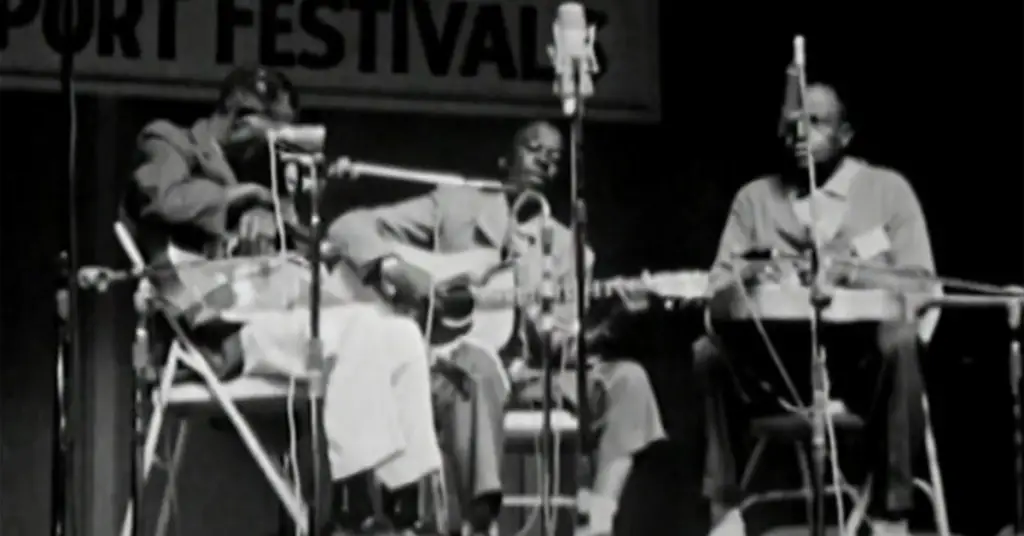Ghost Blues: How Skip James Haunts My Soul Every Time I Hit Play
I’ll never forget the first time I heard Skip James. I was deep-diving into old Delta blues—looking for raw, earthy recordings—and then I stumbled across “Devil Got My Woman.”
That voice. That voice.
High-pitched, eerie, fragile, otherworldly.
It stopped me cold. I wasn’t just listening to music—I was hearing something from beyond, something timeless and terrifying and absolutely beautiful.
I’d heard the blues before, but Skip James? He haunted me.
A Bluesman Lost and Found
Skip James was born Nehemiah Curtis James in Bentonia, Mississippi in 1902. He recorded a small batch of songs in 1931 for Paramount—during the absolute worst days of the Great Depression. Those recordings were raw, complex, and completely unique, but they didn’t sell. He disappeared from the music world and returned to a quiet life as a minister.
But in 1964, during the great folk-blues revival, he was rediscovered—literally—by a group of blues fans who tracked him down in a hospital. And from there, Skip began performing again, re-recording his old material and mesmerizing a whole new generation with music that sounded like it had come from another planet.
The Sound: Bentonia Blues and Ghost Notes
Skip’s style is one-of-a-kind. He used open D-minor tunings that made his guitar sound almost like a harp—moody, mournful, and hypnotic. His playing wasn’t flashy. It was deep, modal, and mysterious.
But it’s that voice that truly sets him apart. Haunting falsetto. Fragile yet firm. A ghost in the machine. He didn’t growl like Son House or moan like Robert Johnson—he floated, mourned, and warned.
His songs weren’t barroom singalongs. They were elegies. Confessions. Curses.
Songs That Still Chill Me to the Bone
Skip James didn’t record a ton of material, but every track he made feels essential. These are the ones that live in my bones:
- 🖤 “Devil Got My Woman” – The ultimate heartbreak blues. If you only hear one Skip James song in your life, make it this one.
- ⚰️ “Hard Time Killing Floor Blues” – An anthem of the Great Depression. Stark, unflinching, timeless.
- 🩸 “22-20 Blues” – Raw, poetic, and beautifully dangerous. Later turned into “Love in Vain” by Robert Johnson.
- 🌫️ “Cypress Grove Blues” – Creepy, lonesome, and utterly unforgettable.
- 🕯️ “I’m So Glad” – One of his more upbeat tunes (ironically), famously covered by Cream—but Skip’s version has the real soul.
Seeing the Man in Motion (on Film)
Of course, I never got to see Skip James live—he passed away in 1969, just a few years after his rediscovery—but I’ve seen the old footage. You can find it on YouTube: black-and-white clips of an older Skip, sitting stoic behind a guitar, barely moving, his eyes distant, his fingers conjuring chords like spells.
Even in grainy film, he feels untouchable. Like he’s not really here. Like the music is coming through him from somewhere else.
Why Skip James Still Matters
Skip James wasn’t just another Delta bluesman—he was a genre unto himself. His tunings, his falsetto, his sense of dissonance and tension—they rewrote the rules.
He influenced Robert Johnson, Cream, Lucinda Williams, and even modern indie-folk and doom artists. If you hear modern blues that’s moody, slow, and spiritual, there’s a little Skip James in it.
He showed that blues could be more than foot-stomping barroom fare. It could be internal, emotional, and existential.
Where to Start If You’re New
Enter the haunted house:
- 🎧 The Complete 1931 Sessions – Grainy, lo-fi, essential. The birth of the ghost.
- 💿 Today! (1966) – His comeback album, beautifully recorded and full of life and pain.
- 🔥 Hard Time Killing Floor Blues (compilations vary) – Just find it. Feel it.
- 📺 YouTube: Search “Skip James Devil Got My Woman live” or “Skip James Hard Time Killing Floor Blues Newport” to see the ghost sing.
Skip James didn’t sing the blues to entertain. He sang them like a man who’d seen too much, said too little, and finally couldn’t keep it in anymore.

Every time I listen, I feel like I’m hearing the soul of Mississippi itself—not shouting, not strutting, but quietly warning you: this world can hurt you bad, and it won’t even blink.
And somehow, that makes his music even more beautiful.
Skip James didn’t just haunt the blues. He became the blues.


Facebook Comments